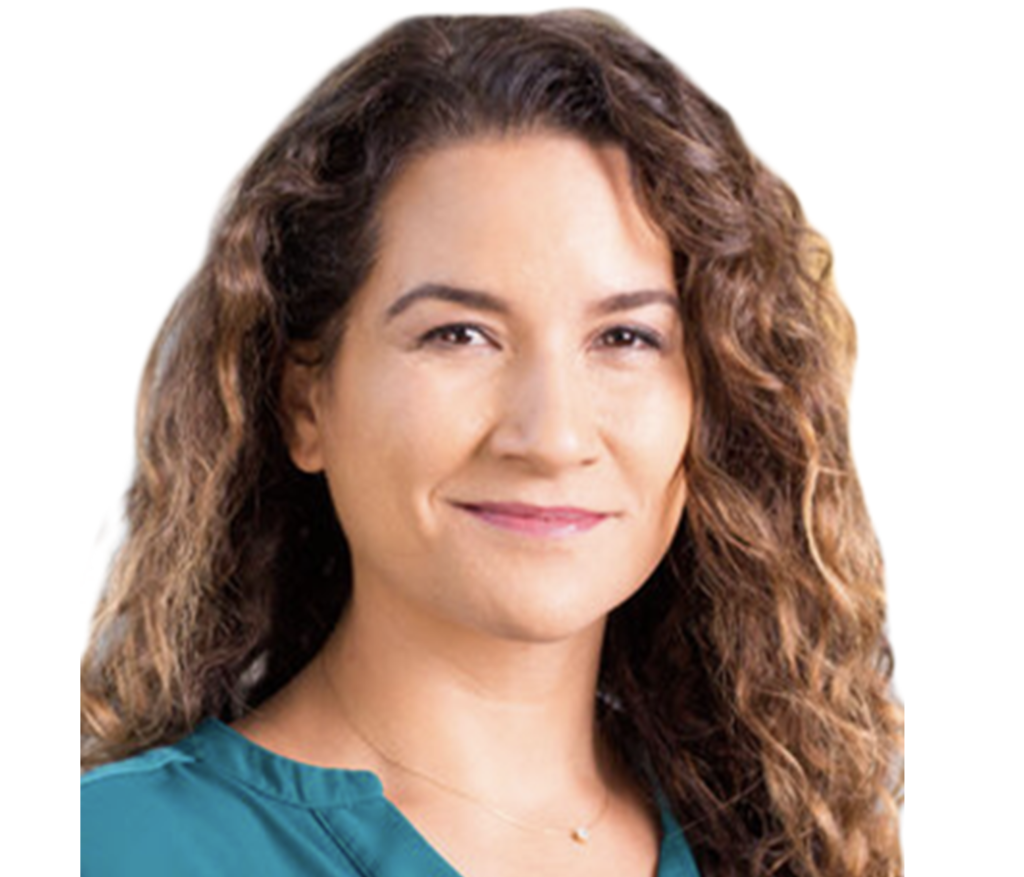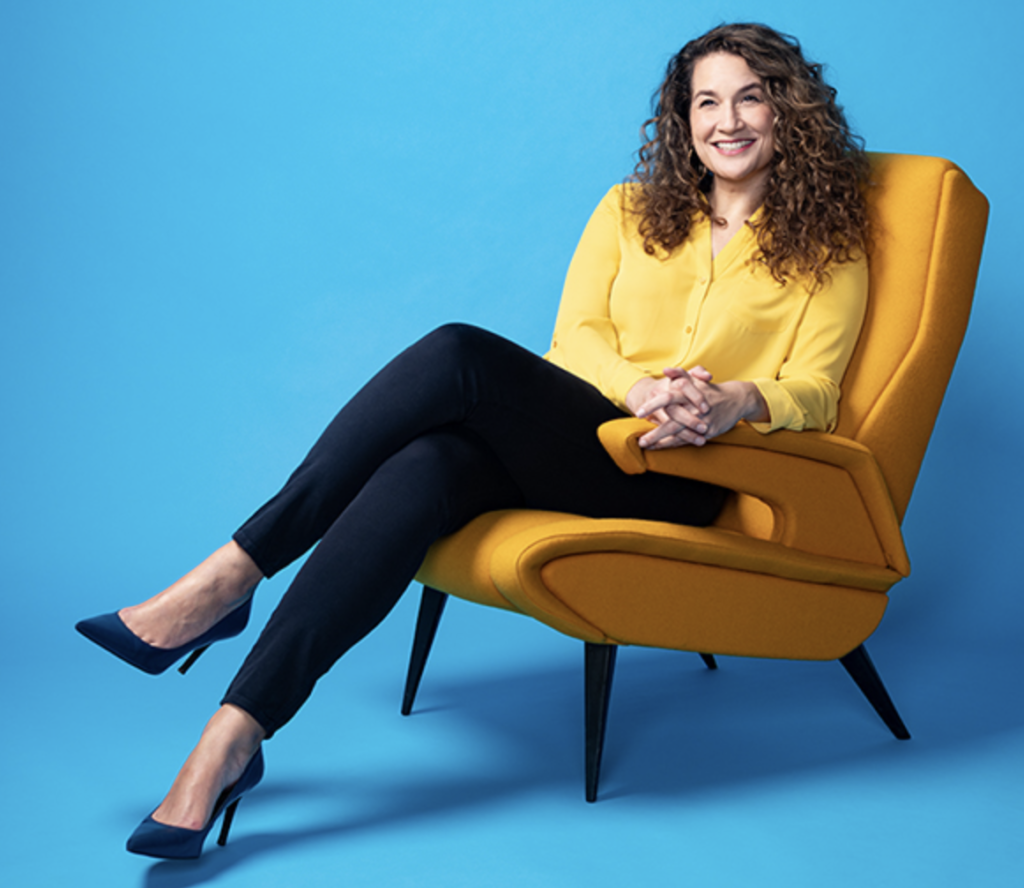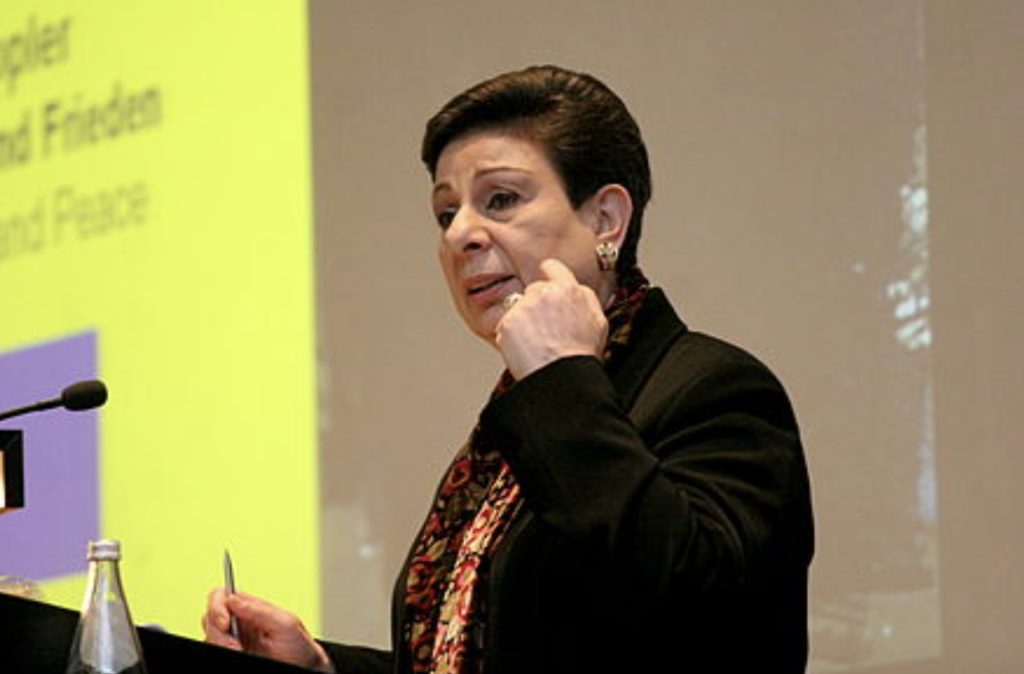Pathbreakers of Arab America—Leila Fadel

By: John Mason / Arab America Contributing Writer
This is the thirty-fourth of Arab America’s series on American pathbreakers of Arab descent. The series includes personalities from entertainment, business, sports, science, academia, journalism, and politics, among other areas. Our thirty-fourth pathbreaker is Leila Fadel, who was born in Lebanon in 1981 and grew up in Saudi Arabia. Educated in journalism in the U.S., Fadel has held many prestigious reporting and anchor positions, most in Arab countries or in the context of Middle East news. Leila is presently a co-host of the NPR show “Morning Edition.” She has received numerous rewards for her journalism and is presently involved in reporting about the war in Gaza.
Leila Fadel, journalist extraordinaire, reports breaking stories with compassion and verve
Leila is a Lebanese American who spent her youth in Lebanon and Saudi Arabia. While we don’t know much about her early years or her birth family, we know she graduated from Northeastern University School of Journalism in 2004. As Wikipedia reports, Fadel went to work almost immediately after graduation for the Fort Worth Star-Telegram as a crime and higher education reporter. While on that beat, she had suggested to her editor that she be assigned to Middle East reporting, for which she was initially turned down.
Nevertheless, soon after that, Fadel ended up with Knight Ridder news reporting on the Iraq war and subsequently with McClatchy news reporting in Iraq and Lebanon during the 2006 war. Her foreign coverage of the devastating human toll of the Iraq war earned her the George R. Polk Award in 2007.
In 2010, Leila joined the Washington Post Middle East team, reporting at first from Egypt during that country’s Arab Spring period of upheaval. She and a Post photographer were arrested and imprisoned for a short period by the Egyptian Ministry of Interior. They were released and held under house arrest in their hotel. Fadel also reported on the repercussions of the Arab Spring in Libya, Tunisia, and Syria. In 2012, she joined NPR (National Public Radio) as Cairo bureau chief.
According to NPR station WABE in Atlanta, Leila’s “stories brought us to the heart of a state-ordered massacre of pro-Muslim Brotherhood protesters in Cairo in 2013 when police shot into crowds of people to clear them and killed between 1,000 and 2,000 people. She told us the tales of a coup in Egypt and what it is like for a country to go through a military overthrow of an elected government.” For her coverage of the 2013 coup in Egypt and “the toll it took on the country and Egyptian families” Fadel won the Lowell Thomas Award from the Overseas Press Club.
Covering the fall of Mosul to ISIS in 2014 Leila “documented the harrowing tales of the Yazidi women who were kidnapped and enslaved by the group. Her coverage also included stories of human smugglers in Egypt and the Syrian families desperate and willing to pay to risk their lives and cross a turbulent ocean for Europe.” In 2017, she earned a Gracie award for “The Story of a single mother in Tunisia whose two eldest daughters were brainwashed and joined ISIS. The mother was fighting to ensure it didn’t happen to her younger girls.” For Fadel’s excellence in overseas journalism generally, in 2016 she was named the Council on Foreign Relations Edward R. Murrow fellow.

Fadel is presently the cohost of Morning Edition and Up First. NPR station WAMU 88.5 in Washington D.C. reported that her work goes beyond the Middle East as if that were insufficient. Leila has also “consistently reported on the fault lines of this divided nation.” For example, she flew to Minneapolis “amid the pandemic as the city erupted in grief and anger over the killing of George Floyd. She’s reported on policing and race, on American Muslim communities, and on the jarring inequities the coronavirus laid bare in the healthcare system.”
Fadel’s collaboration with National Geographic on the “Muslims in America: A New Generation” series won her the prestigious Goldziher Prize in 2019. In 2022, her alma mater, Northeastern, honored Leila with an Honorary Doctorate Degree in Media, on which occasion she gave the graduate commencement speech. Her speech was a moving message to graduating journalists that depicted her journey to volatile places on the map and the enormous challenges and opportunities of reporting news in an ever-increasingly volatile world. (Please see the accompanying video of her speech.)
Fadel’s recent reporting on Palestinian view of the Hamas-Israel war—an interview with revered Hanan Ashrawi
The report on Palestinian perceptions of the Hamas-Israel war cited here is Leila’s NPR Morning Edition interview on October 23, 2023, with Palestinian politician, activist, and scholar Hanan Ashrawi. Ashrawi says that what’s happening between Israel and Hamas militants is a “game-changer.” In a highly abbreviated fashion, we present critical parts of the interview, the original of which includes sounds of war in the background.
LEILA FADEL, HOST: The attack on Israel came fast, and its response was equally swift and severe. But this war has been a long time coming, says Hanan Ashrawi. She’s a leading figure in Palestinian politics and a former peace negotiator. And she says what’s happening between Israel and Hamas is a game changer.

HANAN ASHRAWI: The whole dynamic has shifted. No. 1, the Israeli army that always boasts that it is invincible, that it is in control of everything – the high-tech wired fences and so on, the overground-underground defenses, the fact that they assumed that they have managed to subdue and subjugate Gaza and Hamas and all the resistance fighters – that these were debunked. Now, it’s also different because now for two or three years, the extremist, racist coalition government in Israel has been pushing things beyond endurance. It unleashed violence everywhere.
FADEL: How do you view the Hamas attacks that – you know, these horrific images that have been coming out – that have killed so many civilians inside Israel?
ASHRAWI: It’s like prisoners breaking out of their prison. You oppress people beyond endurance…
FADEL: I think a lot of people were shocked not by the attack itself, but the fact that civilians were killed inside Israel. Did that – the images of that type of killing did that shock you?
ASHRAWI: Yeah. Well, this has been happening to Palestinians all the time and we didn’t hear any moral outrage. Palestinians have been killed and terrorized in their own homes. They’ve been abducted from their own homes. And the shock, I think, for the West is that it’s happening to Israelis.
FADEL: There are images, not of beheadings of babies, like many claimed, including President Biden.
ASHRAWI: So, I mean, in war, you do get different images. But you cannot use this to malign a whole nation. There’s a predisposition, and it’s a racist predisposition to judge Palestinians, to label them.
FADEL: I don’t know if it’s too early when people are still dying right now, but all this bloodshed, when you look at the future, where does it lead?
ASHRAWI: There is no chance; there is no way more killing will produce results. This has been tried since the creation of Israel, you know, the displacement-replacement paradigm of we will get rid of the Palestinians, or they will acquiesce, or we will defeat them. We’re not going to disappear, and we’re not going to surrender. People want to live on their own land and dignity and freedom, so the more bloodshed there is, the worse the situation is.
Generation after generation, they’re destroying the chances of peace. They’re creating a dynamic not only of violence but of revenge. And you’re creating a situation of tremendous instability. And it is being aided and abetted by the Americans and the Europeans, who are pouring money and weapons into Israel, enabling Israel to do more of the same failed policies that have made peace all that much more difficult, if not impossible, to attain.
FADEL: That was Hanan Ashrawi, a former Palestinian peace negotiator based in Ramallah.
This interview is just a small slice of Fadel’s journalistic production. It demonstrates just how eminent, objective, and estimable Leila Fadel is — an Arab American treasure.
Sources:
–“Leila Fadel,” Wikipedia Biographies of Arab Americans, 2024
–“Leila Fadel,” WABE Atlanta-NPR, 2024
–“Leila Fadel, Host, Morning Edition and Up First,” NPR-WAMU 88.5, 2024
–“A Palestinian view of Hamas’ attack on Israel, one of the worst in Israel’s history,” Leila Fadel interview of Hanan Ashrawi, NPR Morning Edition, 10/23/2023
John Mason, Ph.D, focuses on Arab culture, society, and history, is the author of LEFT-HANDED IN AN ISLAMIC WORLD: An Anthropologist’s Journey into the Middle East, New Academia Publishing, 2017. He has taught at the University of Libya, Benghazi, Rennselaer Polytechnic Institute in New York, and the American University in Cairo; John served with the United Nations in Tripoli, Libya, and consulted extensively on socioeconomic and political development for USAID and the World Bank in 65 countries.
The views and opinions expressed in this article are those of the author and do not necessarily reflect the position of Arab America.
Check out our Blog here!








